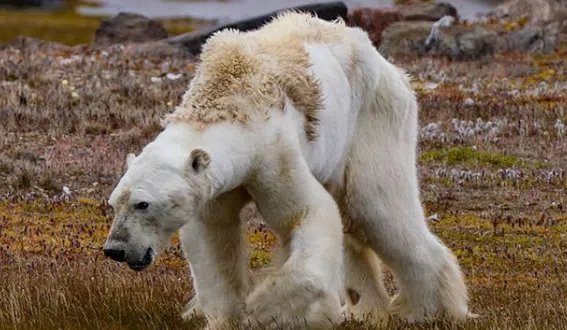
Why a different approach is needed this holiday season and beyond
KAMLOOPS — Last week, the conservation group Sea Legacy (co-founded by Canadian-born photographer and marine biologist Paul Nicklen and his partner Cristina Mittermeier, also a conservationist, photographer, and writer,) released a video of a starving polar bear, aiming to draw attention to an issue that is not new but is getting increasingly worrisome: the impact of climate change on wildlife and the environment, human life included, since we are, truly, but a piece of the big puzzle we call life.
The video was shared on social media, and the heartbreaking reality the Sea Legacy team was confronted with was discussed in the news. In a nutshell, shorter winters and the melting of the sea ice causes more polar bears to go hungry, as they are forced to spend more time on land instead of replenishing their reserves by going after seals, an activity for which they need sea ice.
Other scientists concur. Nick Lunn, a researcher with Environment and Climate Change Canada, recently warned that climate change may be wiping out the subpopulation of polar bears near Churchill, Manitoba, in 20 to 40 years. Occurrences such as a bear swimming underwater for more than three minutes (almost three times longer than normal) while stalking his prey, only points to the same issue: increased starvation, which also causes many hungry bears to walk into cities in search of food. Aside from climate change, polar bears and other Arctic creatures are affected by persistent pollutants which affect their nervous, digestive, and reproductive systems.
The reactions to the photos and video of the severely emaciated bear were diverse, and some, to be honest, rather shocking. Some called it tragic, and vowed to change their ways to reduce their carbon footprint, others said these conservationists are opportunists trying to push their own agenda (I have a hard time with the ridiculousness of such statements) spreading fake news about the climate, while this is a perfectly normal reality, i.e. wild animals starving to death or being diseased. Yes, you can shake your head.


